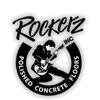When opening a new retail store, flooring choices might not be the first thing that comes to mind, but they should be high on the list. The floors in large retail spaces take a beating—endless foot traffic, shopping carts, displays being moved around, and the occasional dropped item (or tantrum). Choosing the right flooring can (and will) save you headaches, money, and time down the road. And while there are a lot of options out there, polished concrete stands out as the best choice for any new retail store. Let’s break down the benefits, the drawbacks, and what to consider when hiring someone to get the job done.
The Benefits of Polished Concrete
- Durability That Keeps Up With Foot Traffic Let’s face it—your store’s floors are going to take a pounding. From opening day onward, people will be coming and going nonstop. Polished concrete is one of the most durable flooring options on the market. It can handle heavy foot traffic, shopping carts, and even the occasional forklift without showing much wear. That’s because the polishing process strengthens the surface of the concrete, making it incredibly resistant to scratches, stains, and impact.
- Low Maintenance (Even Though No One Loves Sweeping) Once your polished concrete floor is installed, it’s remarkably low-maintenance for the lifetime of the floor. There’s no need to wax or refinish it like with other flooring types and no nooks and crannies (like wood floors) where dirt can gather and get stuck. All you really need is a good sweep and the occasional wet mop to keep it looking shiny and new. This means fewer maintenance hours for your staff and less downtime for your store—a win-win for your schedule and your budget.
- Customizable Color Options One of the coolest things about polished concrete is that you can stain it to almost any color you want. Want a sleek, industrial gray (think Apple)? Done. How about a bold, branded color to match your store’s identity? No problem. Staining allows you to customize your polished concrete floor to complement your shop’s aesthetic. Whether you prefer earthy tones, vibrant hues, or something completely unique, the flexibility is there to make your floors as creative or as subtle as you like. Any good concrete finisher can walk you through the multitude of options.
- A High-Gloss, Modern Look Polished concrete doesn’t just perform well; it also looks great (well…when done correctly). The high-gloss finish reflects light, brightening up your space and giving it a clean, modern look so that your floor looks as good as the day it opened. This can be particularly important in large retail environments where good lighting and a professional aesthetic can impact customer experience. It’s a sleek look that complements everything from trendy clothing displays to warehouse-style home goods stores, pet stores to dollar stores.
- Eco-Friendly and Energy Efficient Polished concrete is one of the most sustainable flooring options available. Since it often utilizes the existing concrete slab in the building, it requires fewer materials and generates less waste. Plus, its reflective surface helps improve lighting efficiency by bouncing light around, reducing the need for additional fixtures. Concrete also has great thermal properties, meaning it can help keep your store cool in the summer and warm(ish) in the winter, potentially lowering your energy bills.
- Cost-Effective (Without Looking Cheap) While polished concrete gives off a high-end vibe, it’s actually one of the most cost-effective flooring options out there. Since the process involves treating the existing concrete slab, you’re saving money by not having to install new materials. It’s also cheaper to maintain than other flooring choices that require regular sealing or refinishing.
The Drawbacks (Yes, There Are a Few)
Of course, polished concrete isn’t perfect. It does come with some drawbacks, though not enough to outweigh the benefits.
- Hardness The same durability that makes polished concrete a great choice also means it’s, well, hard. Like, really hard. That’s fantastic for longevity, but it’s not always the best for comfort. Employees who spend long hours standing on concrete might need anti-fatigue mats, and any item dropped on it will likely break. So, while it’s tough as nails, it’s not exactly the softest surface to stand on for long periods.
- Slippery When Wet Polished concrete can be slippery, especially when it’s wet. This can pose a hazard in areas prone to spills or entrances where rainwater might be tracked in. To combat this, you can opt for slip-resistant treatments, but it’s something to consider, especially if your store sees a lot of foot traffic. The slip-resistant treatments will add cost to the initial service but will be well worth the investment. No one wants to turn their retail floor into a skating rink.
- Cold Underfoot If you’re in a colder climate, be aware that concrete tends to get pretty chilly. While this can be great in the summer, it might leave customers and employees shivering in the winter months. However, if your retail space is climate-controlled, this might not be as much of an issue. If you are pouring the concrete for the first time, you may even consider radiant heating or positioning windows on the south side of the building to encourage the winter sun to warm the floors.
Hazards to Watch Out For
When it comes to polished concrete, there are a few potential hazards to keep in mind. Besides the slipperiness mentioned earlier, the installation process itself can sometimes be disruptive. Grinding and polishing concrete can create dust and noise, so it’s important to plan ahead, especially if your store is already open or in a busy area. Dust control measures and careful scheduling can minimize the impact, but it’s something to be aware of.
Also, polished concrete may not be the best choice in areas where heavy moisture is present. If your retail store has areas prone to flooding or significant water exposure, concrete could become damaged over time, especially if proper sealing measures aren’t taken.
What to Look for in a Concrete Finisher
Now that you’re sold on polished concrete, how do you find someone to install it? Not all concrete finishers are created equal, so here are a few things to look for:
- Experience: Look for a contractor with plenty of experience in large-scale commercial projects. Residential concrete work is very different from retail, so make sure they’ve worked on projects similar to yours. Check Google and Yelp reviews.
- References: Ask for references or check out their online reviews if they have none. A reputable contractor should have plenty of satisfied customers willing to vouch for their work. If they’re new and you are on a tight budget, you may give them a try.
- Licensing and Insurance: Make sure the contractor is licensed and insured. This protects you in case anything goes wrong during the project. This should be non-negotiable, even if they are brand new.
- Portfolio: Ask to see a portfolio of their previous work. This will give you an idea of the quality and style of their finished projects. You can usually find galleries of previous work on their website or Google Business Profile.
- Communication: You want a contractor who’s going to keep you in the loop throughout the process. Make sure they’re willing to explain their methods, timeline, and pricing in detail so there are no surprises.
Conclusion
When it comes to choosing flooring for large retail spaces, polished concrete stands out as a durable, cost-effective, customizable, and low-maintenance option that’s hard to beat. Sure, it’s not perfect—it’s hard, can be slippery, and might get cold—but its benefits far outweigh the downsides. With the right contractor, polished concrete can give your store a modern, professional look in any color you choose, all while keeping maintenance to a minimum. So, if you’re in the market for new flooring, it might be time to give polished concrete a serious look.
If you’re in the Upstate of South Carolina and need more information on polished concrete or to see how it could work for your retail shop, visit Zachary Daniel Concrete for expert advice and installation.










 The 2024 virtual Men’s Round Table will be held Q4, 2024, date TBD.
The 2024 virtual Men’s Round Table will be held Q4, 2024, date TBD.













